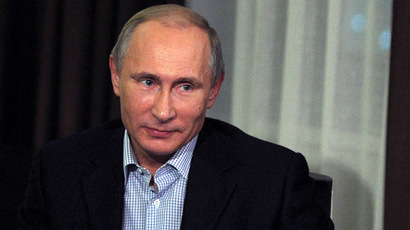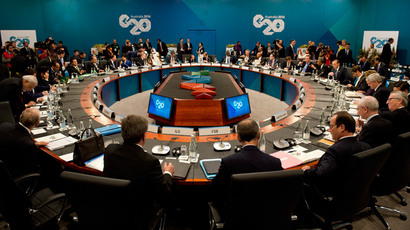Putin: Economic blockade of E. Ukraine a ‘big mistake’
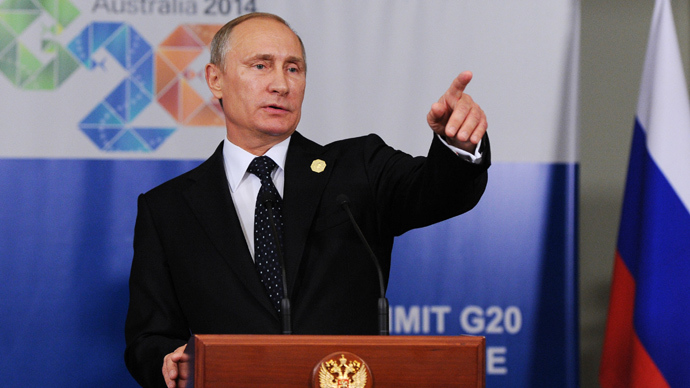
Ukraine’s decision to sever economic ties with rebel-held areas and stop funding local public services is a big mistake which does not help the locals gain trust in Kiev, Russian President Vladimir Putin told journalists at the G20 summit.
READ MORE: Ukraine scraps human rights treaty for rebel areas, cuts services, freezes banks
“I don’t understand why Kiev authorities are cutting off those territories with their own hands. Well one can understand – to save money. But it’s not the time or the case to save money on,” he said.
Putin compared Kiev’s debacle with the Donetsk and Lugansk
regions to Russia’s own armed conflict in the Chechen Republic
that erupted several times since the early 1990s and officially
ended in April 2009. But even at the worst moments, Moscow did
not stop paying pensions and other social benefits to the Chechen
people, he said.
“At moments that appeared to be stupid, because the people
who were in control there not only embezzled that money but also
could use them for obviously less-than-noble goals. But we did it
due to our moral obligations to the common people. And in the end
it turned out to be the right decision, as Chechens appreciated
what Russia did to support the common people,” Putin said.
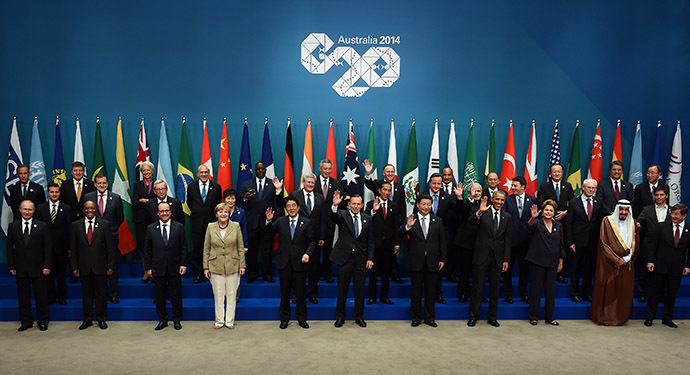
The Russian leader said he hopes the decision of the Ukrainian President Petro Poroshenko will be amended according to the demands of real life.
Kiev decided to take a number of measures
in the rebel-controlled areas of eastern Ukraine, including
suspending human rights protection for their residents, freezing
public services, and banning banks from operating there. The
stifling economic measures were ordered in a decree by President
Petro Poroshenko on Friday.
The move was in retaliation for the elections
that the self-proclaimed Donetsk and Lugansk People’s Republics
held earlier in November in defiance of Kiev’s prohibition.
Sanctions, oil, G20 talks
Putin was speaking in Australia’s Brisbane, where he took part in the G20 summit.
During the G20 meetings, there was a common understanding that economic sanctions against Russia harm both their targets and the countries imposing them, and a way out of the current situation is urgently needed, the Russian President told journalists following the second day of talks.
“I believe there is a common understanding that this statement does not only deserve a right to exist, but is the only true one,” Putin said.
While many media outlets, both in Australia and in other countries, implied that Putin had an icy welcome at G20 summit, the actual atmosphere at the event was quite cordial, the Russian leader said.
Putin praised the attitude of Australians in Brisbane and the hospitality of the country’s Prime Minister Tony Abbot, who played host to the event.
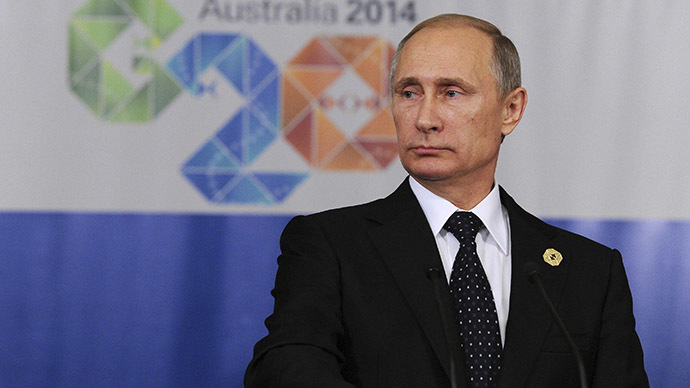
“I took a look at the local press and other media after I arrived here. There was some whipping up of the tension. The actual reality and the virtual life as reported by the media – at least in this particular case – differed a lot,” Putin stressed.
Putin said that while virtually every bilateral meeting he had at
the summit focused on Ukraine, the general meetings did not even
mention it. Instead, the agenda included infrastructure
investment and introducing a new institution into the global
energy industry, among other topics.
Speaking of Russia’s own standing in a world of lowering oil
prices and after the Russian national currency experienced rapid
devaluation, Putin assured that the nation has enough resilience
to weather the storm. Due to the dollar’s rise, oil was traded
higher than the Russian 2014 budget expected in the first half of
the year, so the current low price won’t force a correction, he
said.
“We will see what happens next year. If this continues, we’ll
correct our spending, but it won’t affect our social
obligations,” Putin said.
Putin’s early leave
Vladimir Putin has left the G20 summit a bit earlier than planned ,skipping a Sunday working breakfast. Following an avalance of media speculations over the motives for his early departure, he explained the move by saying he had a long trip back to Moscow before returning to work on Monday.
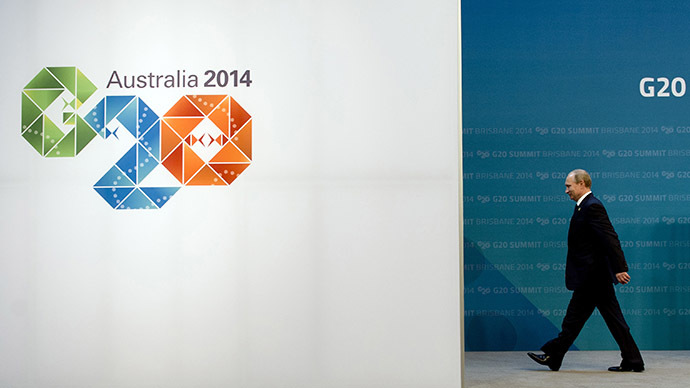
“Just to avoid speculations here - I didnt' go to a working
breakfast but the finance minister is staying,” he said.
“The trip from here to Vladivostok is nine hours. And nine hours
more from Vladivostok to Moscow. I’d like to get home before
going to work on Monday. And have at least four or five hours of
sleep. So I told that to Tony [Abbott] and he bore with me. There
are no other considerations here.”
Earlier, some media implied that Putin would leave the summit
early because other world leaders pressured him over Russia’s
position on the Ukrainian crisis. Putin denied the reported
hostility, saying that the reality of the summit was different
from what the media described, and the atmosphere was
constructive.













